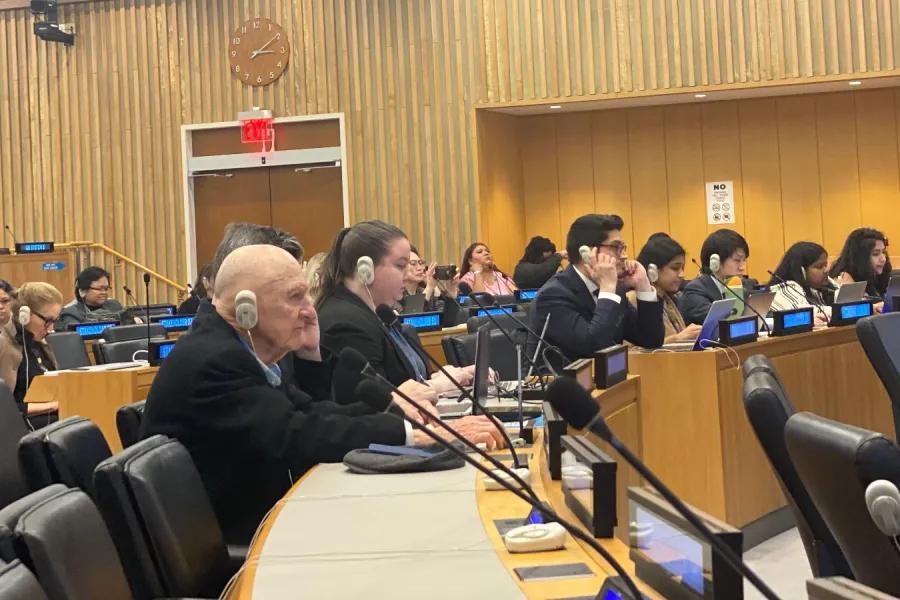Stakeholders Call for Ambitious, Inclusive Action at Informal Hearing on the Road to Doha

On 22 April 2025, representatives from civil society, UN system entities, and Member States convened in New York for an Informal Stakeholder Hearing on the “Food for Thought” paper—marking a key milestone in the participatory preparations for the Second World Summit for Social Development, to be held in Doha in November 2025.
Co-hosted by the Permanent Missions of Belgium and the Kingdom of Morocco, on behalf of the co-facilitators H.E. Sophie De Smedt and H.E. Omar Hilale, the hearing provided a platform for over 30 NGOs, youth groups, and thematic experts to contribute perspectives on social protection, economic justice, climate resilience, intergenerational equity, and more.
“This Summit is not about listing priorities—it’s about shaping a vision of dignity, inclusion, and rights for all,” the co-facilitators emphasized in their opening remarks.
Key Messages from Stakeholders
Participants welcomed the process but stressed that this hearing must be the beginning—not the end—of a transparent and meaningful participatory process. Among the many calls made during the session:
Social Protection and Economic Justice: Establish universal, rights-based social protection systems; cancel unsustainable debt; and reform global financial institutions to empower countries to invest in people.
Youth, Education, and Technology: Invest in inclusive, climate-conscious education and institutionalize youth participation in national development strategies.
Care, Health, and Well-being: Recognize and value unpaid care work; strengthen climate-resilient health systems; and promote mental health as a human right.
Private Sector and Employment: Highlight MSMEs as engines of development and ensure alignment with the UN Guiding Principles on Business and Human Rights.
Older Persons and Intergenerational Equity: Address population ageing through inclusive policies, universal income security, and age-disaggregated data.
Disability Inclusion, LGBTQI+ Rights, and Housing: Ensure full participation and visibility of marginalized groups, including calls for de-institutionalization, adequate housing as a right, and explicit recognition of LGBTQI+ rights.
Data and Accountability: Move beyond GDP. Adopt multidimensional well-being indicators and empower communities to generate and use their own data.
A Call for Visibility, Access, and Commitment
Stakeholders urged the inclusion of dedicated civil society spaces during the Summit—such as youth-led, feminist, and disability forums—and greater access to draft texts and programmatic decisions. They asked that the Political Declaration be rooted in rights-based approaches, with concrete mechanisms for accountability and implementation.
Thematic proposals from the hearing will inform the next stage of intergovernmental negotiations. As the road to Doha continues, participants reiterated a clear message: inclusive development must reflect the voices and realities of all people—not just some.
 Welcome to the United Nations
Welcome to the United Nations


